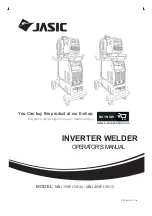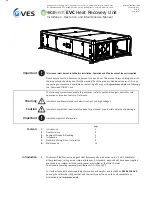
GLOSSARIO
ITA
UK
24
GLOSSARY
ALIMENTATORE SWITCHING
BAND-PASS (Filtro Passa Banda)
CLASSE DELL’AMPLIFICATORE
CLIPPING
COMPRESSORE
CROSSOVER, rete di
DINAMICA, range dinamico
FASE
HIGH PASS FILTER
LIMITER
PINK NOISE
SPL
THD
Un alimentatore che converte la potenza dell’alimentazione
alternata AC ad una frequenza molto superiore grazie ad un
circuito di tipo switching prima di rendere disponibile tale
potenza per l’uso interno dell’amplificatore. I benefici primari di
un alimentatore switching sono un peso globalmente inferiore
e ridotte emissioni elettromagnetiche.
Dispositivo che, data una frequenza centrale e una larghezza
di banda, lascia passare solo le frequenze interne alla banda
specificata da questi parametri, attenuando le altre.
Gli amplificatori di potenza vengono catalogati principalmente
secondo la tipologia dello stadio finale. La classificazione è
basata sulla quantità di tempo nel quale i dispositivi di uscita
rimangono attivi durante ogni ciclo. Classi comuni di
amplificatori nel settore audio professionale sono: AB, AB+B,
D, H.
Fenomeno di distorsione digitale che si verifica quando
l’ampiezza del segnale in ingresso ad un dispositivo di
campionamento supera la gamma dinamica gestibile dal
dispositivo stesso.
Un compressore è un dispositivo che riduce il range dinamico
di un segnale audio. Si definisce dapprima la soglia, quando il
segnale audio è superiore al livello di soglia il suo guadagno
viene ridotto.
I filtri passa-alto e passa-basso per i diffusori non tagliano le
frequenze indesiderate; il “roll-off” (attenuazione del filtro)
avviene su un numero elevato di ottave. Pendenze comuni per
filtri dedicati ai diffusori sono dal 1° al 4° ordine che
corrispondono a 6dB per ottava e 24dB per ottava.
Il range dinamico di un suono è il rapporto tra la sua parte più
forte e potente e la sua parte più debole e leggera; è misurato
in dB.
Date più onde di diversa “forma d’onda” e diversa frequenza, si
dice che esse sono in fase se, in uno stesso istante, passano
per l’asse del tempo con la stessa pendenza; in caso contrario
si dicono fuori fase. La fase è un elemento molto importante
per le onde sonore in quanto fondamentale per stabilire quale
sarà il risultato della somma di più onde; due suoni identici ma
di fase opposta, ad esempio, si annullano.
Un filtro che lascia passare inalterate le frequenze oltre una
certa frequenza ed attenua quelle al di sotto della stessa; può
essere chiamato anche filtro low-cut.
Particolare tipo di compressore progettato per impedire al
segnale di oltrepassare un dato livello di ampiezza.
Alla lettera rumore rosa; è così detto in contrapposizione al
rumore bianco. È rumore privo di periodicità e che contiene
frequenze di tutto lo spettro sonoro ma, diversamente dal
rumore bianco, ad ampiezza maggiore alle basse frequenze e
minore alle frequenze alte, in modo da adattarsi alla sensibilità
dell’orecchio umano che è meno sensibile alle frequenze
minori.
Il volume acustico o la spinta sonora percepita, misurata in
decibel; SPL è funzione dell’ampiezza del segnale.
Il rapporto tra la potenza della frequenza fondamentale
all’uscita di un dispositivo rispetto alla potenza totale di tutte le
armoniche nella banda di frequenza disponibile all’uscita del
dispositivo.
AMPLIFIER CLASS
CLIPPING
COMPRESSOR
CROSSOVER network
DYNAMICS, dynamic range
HIGH PASS FILTER
LIMITER
SPL
THD
Power amplifiers are mainly classified according to the type of
output stage. Such classification is based on how long output
devices remain active during each cycle. The most common
classes of professional sound amplifiers are: AB, AB+B, D, G,
H
.
Digital distortion occurring when the amplitude of an input
signal to a sampling device exceeds the dynamic range that
the same device can manage.
A device reducing the dynamic range of an audio signal. First,
the threshold has to be set. Then, if the signal exceeds the
threshold value, its gain is reduced.
High- and low-pass filters used for speakers do not cut-off
undesired frequencies; the roll-off (filter attenuation) occurs
over a number of octaves. Common filter slope for speakers
are 1st through 4th order, corresponding to 6dB/octave to 24
dB/octave.
The dynamic range of a sound is the ratio between the strong
and powerful part of that sound, and its soft and light part; it is
measured in dB.
It is a filter letting the frequencies above a certain threshold
pass, and cutting the frequencies below such threshold.
It is
also called
“
low-cut filter
”
.
It is special compressor designed to prevent the signal from
exceeding a certain amplitude level.
Perceived sound volume or pressure, measured in decibels.
The SPL is a function of signal amplitude.
The ratio between the power of the fundamental tone at device
output and the total power of all the harmonics in the frequency
band at device output.
BAND-PASS (band-pass filter)
PHASE
PINK NOISE
SWITCH MODE POWER SUPPLY
This is a device that, once given a centre frequency and a
bandwidth, lets only the frequencies within the band specified
by these parameters pass, attenuating the others.
Considering given waves with different waveforms and
frequencies, they are told to be
“
in phase
”
if they cross the time
axis with the same slope at the same time.
Otherwise, they
are told to be
“
out-of-phase
”
. The phase is a very important
element of sound waves since it is essential to establish the
result of the addition of several waves; for instance, two
identical sounds with opposite phases cancel out.
The noise is said to be pink, as opposed to the white noise. It is
a non periodic noise, which includes frequencies from the
whole acoustic spectrum. However, unlike the white noise, it
has higher amplitude at low frequencies and lower amplitude
at high frequencies, so to adjust to the human ear sensitivity,
that is less sensitive to lower frequencies.
A unit that, before making the power available for internal use
in the amplifier, converts the AC power supply into a much
higher frequency thanks to a switch mode circuit.
The
advantages of a switch mode power supply are its lower weight
and reduced electromagnetic emissions.
Summary of Contents for PRO MAX 10
Page 28: ......
Page 29: ......
Page 30: ......
Page 31: ......
Page 32: ......
Page 33: ......
Page 34: ......
Page 35: ......
Page 36: ......
Page 37: ......
Page 38: ......
Page 39: ......
Page 40: ......
Page 41: ......
Page 42: ......
Page 43: ......
Page 44: ......
Page 45: ......
Page 46: ......
Page 47: ......
Page 48: ......
Page 49: ......
Page 50: ......
Page 51: ......
















































